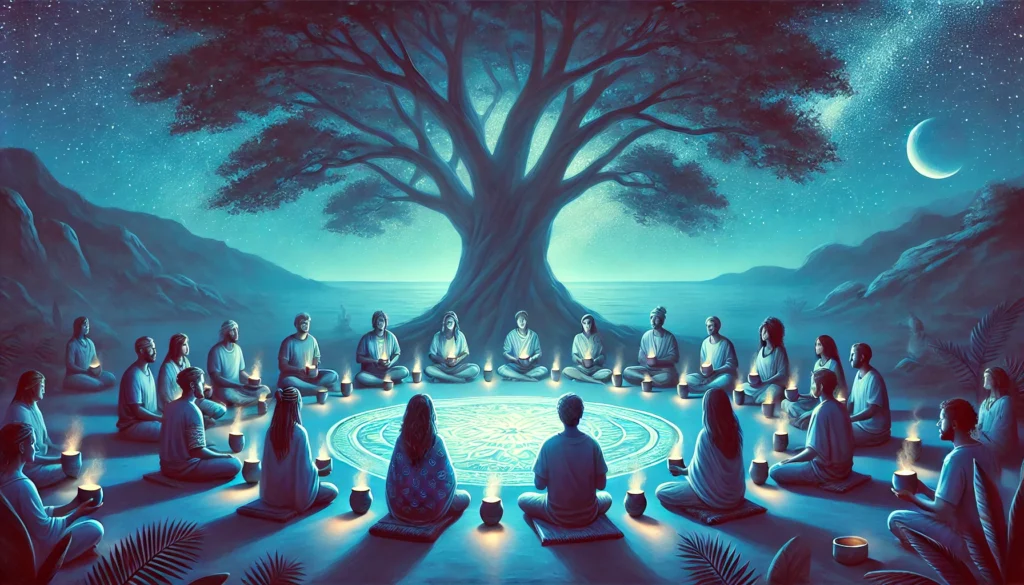
The history of cacao as a ceremonial elixir began more than 3,000 years ago in the heart of Mesoamerica. The Mayans, one of the most advanced civilizations of their time, cultivated cacao trees with meticulous care, fully aware of their healing properties on a physical, emotional, and spiritual level. Cacao was not just food; it was a portal to the divine.
Cacao was reserved for special celebrations and sacred rituals. It was believed that consuming cacao allowed participants to communicate with higher realms, access an expanded state of consciousness, and receive guidance from the spiritual world.
This ceremonial use of cacao was passed down from generation to generation, preserving its sacred essence for centuries. However, with the arrival of the Spanish, its significance changed dramatically.
During the colonization of Mesoamerica, the Spanish explorers discovered cacao and became fascinated by its unique flavor. They decided to bring it to Europe, where it quickly became a popular beverage among the elite.
Europeans valued cacao primarily for its commercial appeal and luxurious nature, stripping it of its sacred essence and spiritual practices. As a result, cacao temporarily lost its connection to its ceremonial roots.
It was not until the mid-20th century that cacao ceremonies began to resurface. This revival was driven by a renewed interest in Indigenous traditions and spiritual plant-based practices.
Today, people around the world are rediscovering the ancient wisdom of cacao and embracing it as a powerful tool for personal and collective transformation.
Modern cacao ceremonies draw inspiration from traditional practices but also incorporate contemporary elements and influences from other ancient spiritual traditions, such as those from India.
Facilitators guide participants through various rituals, combining cacao drinking with meditation, breathwork, mindfulness practices, and group sharing.
These ceremonies are designed to open the heart, encourage self-exploration, and foster a deep sense of unity and connection. Participants not only experience cacao’s physical benefits, such as increased energy and enhanced mood, but also a profound spiritual connection.
In a cacao ceremony, individuals become part of a global community of like-minded souls, supporting each other in their evolutionary journey.